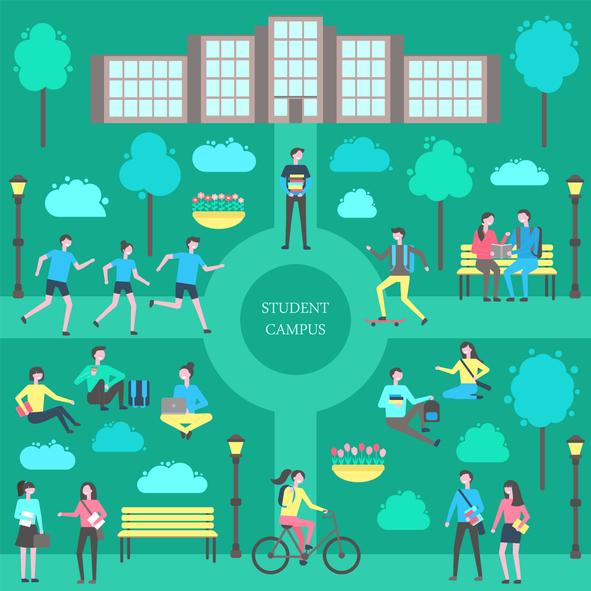While a prospective college student conducts research on various colleges, he or she may stumble upon questions on whether a college is the best fit for their learning style, interests, and personal needs. College visits are an extremely useful tool to answer lingering questions about a college and acquire a “feel” for the campus, student body, and general atmosphere.
• Am I comfortable with the location of the college?
• Do I have access to all of the resources and support I need on or near campus?
This step will assist the student in knowing what the school offers, which further generates questions about the other aspects of the school. The research also gives the student elements to look for during the actual visit. Research can be conducted through college website searches, trusted reviews, and factual statistics. Although some research may support assumptions, it is necessary to maintain an open mind for the acquisition of new information during a visit—Which may challenge preconceived points of view.
When preparing for a visit, the student and their family can create a checklist of important topics and questions they plan to cover during their visit. The checklist can be accompanied by prior research that may assist the student in finding the answers to their questions.
According to personal preference, prospective students need to decide how they will tour the campus. Most colleges offer tours guided by a resident or administrator of the college. Some colleges orchestrate tours based on certain time frames students and their families can openly join the tour. Others require students to sign up for spots on the tour due to a limitation of members on a tour.
Another available option includes self-guided tours. Here a student should obtain a map or list of buildings to guide them through the campus. Due to traveling expenses that may not fit everyone’s lifestyles, many colleges offer programs that aid prospective students by providing transportation to the college, meals, and housing on campus for the duration of the stay.
If a student is interested in meeting with a specific coach, director, or another member of the faculty and staff, the student should contact the individual before arriving on campus. This prevent scrambling to track the individual down at the last minute.
Financial Aid
FAFSA Still Open: How to Secure Your Financial Aid During the Government Shutdown
The government shutdown has raised concerns about the FAFSA and financial aid, but students and parents can rest assured that the FAFSA is still open. Filing now keeps you on track for federal, state, and college-based aid, ensuring you don’t miss out on funding opportunities.
Popular
Latest
Trending
- Top Scholarships for High School Juniors: Class of 2027
- Weird Scholarships that Pay for College: Strange, Totally Real Opportunities
- Burger King WHOPPER Scholarship: $1,000–$60,000 for Seniors
- Fall into Scholarships: October and November 2025 Scholarship Opportunities
- 2026 Taco Bell Live Más Scholarships: Over $14.5 Million Available for 1,000+ Student Winners!
Join Fastweb.
Match Instantly.
Become a member and gain exclusive access to our database of over 1.5 million scholarships.
